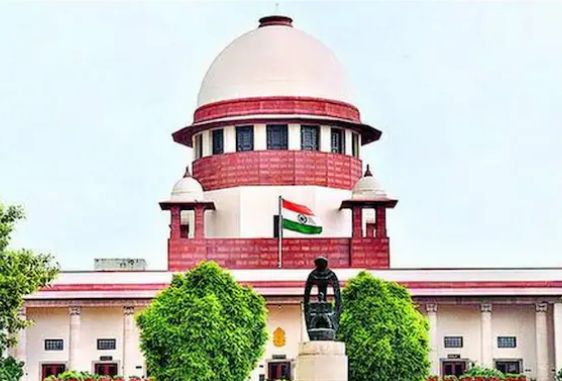The Supreme Court of India has expressed serious concern over the alarming rise in digital arrest scams across the country, where fraudsters are allegedly forging court orders and judges’ signatures to extort money from citizens. Taking cognizance of the issue, a bench of Justices Surya Kant and Joymalya Bagchi has sought responses from the Central government and the Central Bureau of Investigation (CBI) on the growing number of such incidents.
The court was hearing a suo motu case triggered by a shocking complaint from a senior citizen couple in Ambala, Haryana, who were victims of a cybercrime racket that falsely claimed to have issued their arrest orders. The couple was coerced into paying ₹1.05 crore to individuals impersonating officials from probe agencies. The matter reached the Supreme Court after the 73-year-old woman wrote to Chief Justice D.Y. Chandrachud detailing how the fraudsters used forged judicial documents, complete with digital seals and signatures, to extort money through multiple video and audio calls between September 3 and 16.
The bench observed that the fabrication of judicial documents and misuse of judges’ signatures strike at the very foundation of public trust in the judiciary and constitute a direct assault on the dignity of the institution. It stated that such acts of forgery and impersonation could not be treated as ordinary cases of cheating or cybercrime, as they fundamentally threaten the credibility of the judicial system and erode faith in the rule of law.
The apex court has directed the Attorney General of India, the Ambala cybercrime unit, and the Haryana state government to submit a detailed status report on the investigation. The bench also emphasized that a coordinated effort between central and state authorities is essential to uncover the full scale of the criminal enterprise involved in forging judicial documents and extorting citizens.
Noting that similar scams have surfaced in several parts of the country, the court remarked that such coordinated cybercrimes specifically target vulnerable groups, including senior citizens, through fear and intimidation. The top court reiterated that strong measures and inter-agency cooperation are urgently required to dismantle these organized networks and restore public confidence in the justice system.








